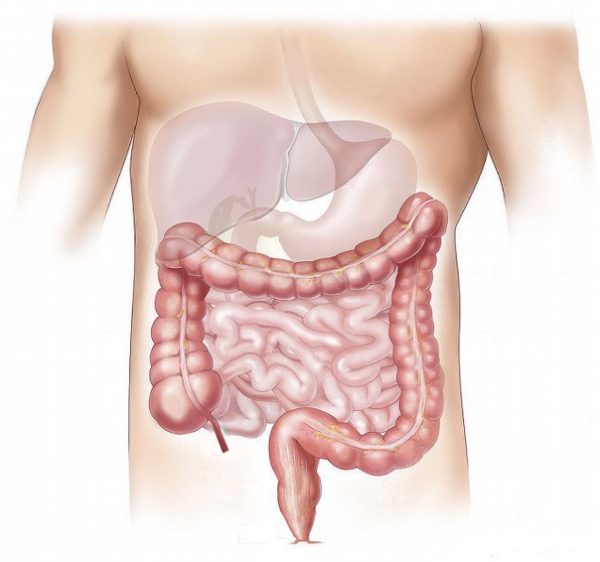
What Is Colon Cancer – Educate Yourself
MARCH IS Colon cancer awareness month!
Colorectal cancer, or colon cancer, occurs in the colon or rectum. As the graphic below shows, the colon is part of the large intestine or large bowel. The rectum is the passageway that connects the colon to the anus.
Colon cancer, when discovered early, is highly treatable. Even if it spreads into nearby lymph nodes, surgical treatment followed by chemotherapy is highly effective. In the most difficult cases — when the cancer has spread to the liver, lungs or other sites — treatment can help make surgery an option for many, as well as prolonging and adding to one’s quality of life. Research is constantly being done to learn more and provide hope for people no matter what stage they are.
Most colon cancers develop first as polyps, which are abnormal growths inside the colon or rectum that may later become cancerous if not removed.
Colon cancer affects men and women of all racial and ethnic groups, and is most often found in people 50 years or older. However incidence in those younger than 50 is on the rise. This disease takes the lives of more than 50,000 people every year; we’re here to combat these statistics and educate people about how to prevent this disease. Colon cancer is the third most common cancer in the US, and the second leading cause of cancer death.
Colon cancer first develops with few, if any, symptoms. Be proactive and talk to your doctor. If symptoms are present, they may include:
- A CHANGE IN BOWEL HABITS: Including diarrhea, constipation, a change in the consistency of your stool or finding your stools are narrower than usual
- PERSISTENT ABDOMINAL DISCOMFORT: Such as cramps, gas, or pain and/or feeling full, bloated or that your bowel does not empty completely
- RECTAL BLEEDING: Finding blood (either bright red or very dark) in your stool
- WEAKNESS OR FATIGUE: Can also accompany losing weight for no known reason, nausea or vomiting
These symptoms can also be associated with many other health conditions. Only a medical professional can determine the cause of your symptoms. Early signs of cancer often do not include pain. It is important not to wait before seeing a doctor. Early detection can save your life.
WHEN TO SEE A DOCTOR?
- These symptoms can also be associated with many other health conditions. Only a medical professional can determine the cause of your symptoms.
- Early signs of cancer often do not include pain. It is important not to wait before seeing a doctor. Early detection can save your life.
- Remember, the most common symptom is NO symptom, which is why we call it the silent killer. If you’re 50, average risk, get screened!
TREATMENT:
Colon cancer has become a reality for many people younger than age 50, and it’s the only group where incidence rates are on the rise. In fact, 11% of colon cancer diagnoses and 18% of rectal cancer diagnoses occur in those under 50.
Treatment for colon cancer depends on the location of the tumor and the stage of the disease. Treatment may involve:
- Surgery: Surgery is the most common treatment for colon cancer. There are two main types of surgery: laparoscopy and open surgery.
- Chemotherapy: Chemotherapy refers to treatment using chemicals to kill cells that divide rapidly, such as harmful cancer cells. Typically, your doctor will give these drugs in cycles, administering a treatment for a period of time followed by a rest to allow your body time to recover.
- Biological Therapy: Biologics include a wide range of substances from animal products and other living sources (as opposed to chemically manufactured medications) to prevent, diagnose or treat disease.
- Liver Directed Therapy: If surgery is not an option at diagnosis, your doctor may choose to give you liver directed or targeted therapies. Many liver directed therapies include ablation, embolization and internal radiation using yiitrium-90 microspheres.
- Radiation Therapy: Radiation therapy uses high-energy rays to kill cancer cells. It affects cancer cells only in the treated area. Doctors use different types of radiation therapy to treat cancer. Sometimes people receive a combination of types.
REMEMBER: All men and women should be screened for colon cancer. Your individual risk factors – such as ethnicity, lifestyle and family history – will determine when you should start getting checked. For most adults, it is recommended that colon cancer screening should begin at age 50.
For more information please visit: https://www.ccalliance.org/
Image credit: https://www.needpix.com/photo/656916/offal-marking-medical-intestine-liver-small-intestine-colon-belly-human (Free for commercial use)
Author: Sumana Rao | Posted on: February 28, 2017
« “Invisible” Disease – Juvenile Arthritis (JA) Gambling Addiction »






















Write a comment